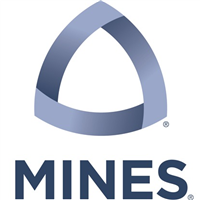What do they do?
Design, develop, or evaluate energy-related projects or programs to reduce energy costs or improve energy efficiency during the designing, building, or remodeling stages of construction. May specialize in electrical systems; heating, ventilation, and air-conditioning (HVAC) systems; green buildings; lighting; air quality; or energy procurement.
Also known as:
Energy Efficiency Engineer, Energy Engineer, Industrial Energy Engineer, Measurement And Verification Engineer, Test and Balance Engineer
-
2.3%
Change
Ranks #43 in job growth rate490Job Openings
Ranks #6 in net job growth
-
United States Naval Academy
Annapolis, MD
-
Dartmouth College
Hanover, NH
-
Harvey Mudd College
Claremont, CA
-
Colorado School of Mines
Golden, CO
-
Stanford University
Stanford, CA
Looking for colleges that offer a specific major? Use the College Match Tool to find your best-matched schools and discover your estimated Net Price!
- Doctorate or Professional Degree (8%)
- Master's degree (26%)
- Bachelor's degree (50%)
- Associate's degree (6%)
- Some college, no degree (7%)
- High school diploma equivalent (4%)
- Less than high school diploma (1%)
Most Popular Majors that prepare Energy Engineers, Except Wind and Solar
-
#1
-
Degrees Granted
2,350
-
Female Students
612
-
Male Students
1,738
-
Median Starting Salary
$64,763
-
-
#2
-
Degrees Granted
862
-
Female Students
309
-
Male Students
553
-
Median Starting Salary
$64,763
-
-
#3
-
Degrees Granted
813
-
Female Students
300
-
Male Students
513
-
Median Starting Salary
$61,700
-
-
#4
-
Degrees Granted
724
-
Female Students
228
-
Male Students
496
-
Median Starting Salary
$66,400
-
-
#5
-
Degrees Granted
650
-
Female Students
118
-
Male Students
532
-
Median Starting Salary
$64,763
-
People in this career often have these skills:
- Reading Comprehension - Understanding written sentences and paragraphs in work-related documents.
- Critical Thinking - Using logic and reasoning to identify the strengths and weaknesses of alternative solutions, conclusions, or approaches to problems.
- Active Listening - Giving full attention to what other people are saying, taking time to understand the points being made, asking questions as appropriate, and not interrupting at inappropriate times.
- Writing - Communicating effectively in writing as appropriate for the needs of the audience.
- Monitoring - Monitoring/Assessing performance of yourself, other individuals, or organizations to make improvements or take corrective action.
- Complex Problem Solving - Identifying complex problems and reviewing related information to develop and evaluate options and implement solutions.
- Systems Analysis - Determining how a system should work and how changes in conditions, operations, and the environment will affect outcomes.
- Speaking - Talking to others to convey information effectively.
- Mathematics - Using mathematics to solve problems.
- Active Learning - Understanding the implications of new information for both current and future problem-solving and decision-making.
- Science - Using scientific rules and methods to solve problems.
- Judgment and Decision Making - Considering the relative costs and benefits of potential actions to choose the most appropriate one.
- Systems Evaluation - Identifying measures or indicators of system performance and the actions needed to improve or correct performance, relative to the goals of the system.
- Operations Analysis - Analyzing needs and product requirements to create a design.
People in this career often know a lot about:
- Engineering and Technology - Knowledge of the practical application of engineering science and technology. This includes applying principles, techniques, procedures, and equipment to the design and production of various goods and services.
- Mathematics - Knowledge of arithmetic, algebra, geometry, calculus, statistics, and their applications.
- Building and Construction - Knowledge of materials, methods, and the tools involved in the construction or repair of houses, buildings, or other structures such as highways and roads.
- Customer and Personal Service - Knowledge of principles and processes for providing customer and personal services. This includes customer needs assessment, meeting quality standards for services, and evaluation of customer satisfaction.
- Mechanical - Knowledge of machines and tools, including their designs, uses, repair, and maintenance.
- English Language - Knowledge of the structure and content of the English language including the meaning and spelling of words, rules of composition, and grammar.
- Administration and Management - Knowledge of business and management principles involved in strategic planning, resource allocation, human resources modeling, leadership technique, production methods, and coordination of people and resources.
- Design - Knowledge of design techniques, tools, and principles involved in production of precision technical plans, blueprints, drawings, and models.
- Physics - Knowledge and prediction of physical principles, laws, their interrelationships, and applications to understanding fluid, material, and atmospheric dynamics, and mechanical, electrical, atomic and sub-atomic structures and processes.
- Economics and Accounting - Knowledge of economic and accounting principles and practices, the financial markets, banking, and the analysis and reporting of financial data.
People in this career often have talent in:
- Problem Sensitivity - The ability to tell when something is wrong or is likely to go wrong. It does not involve solving the problem, only recognizing that there is a problem.
- Oral Comprehension - The ability to listen to and understand information and ideas presented through spoken words and sentences.
- Written Comprehension - The ability to read and understand information and ideas presented in writing.
- Deductive Reasoning - The ability to apply general rules to specific problems to produce answers that make sense.
- Inductive Reasoning - The ability to combine pieces of information to form general rules or conclusions (includes finding a relationship among seemingly unrelated events).
- Information Ordering - The ability to arrange things or actions in a certain order or pattern according to a specific rule or set of rules (e.g., patterns of numbers, letters, words, pictures, mathematical operations).
- Oral Expression - The ability to communicate information and ideas in speaking so others will understand.
- Mathematical Reasoning - The ability to choose the right mathematical methods or formulas to solve a problem.
- Speech Clarity - The ability to speak clearly so others can understand you.
- Written Expression - The ability to communicate information and ideas in writing so others will understand.
- Near Vision - The ability to see details at close range (within a few feet of the observer).
- Speech Recognition - The ability to identify and understand the speech of another person.
- Category Flexibility - The ability to generate or use different sets of rules for combining or grouping things in different ways.
People in this career often do these activities:
- Analyze energy usage data.
- Advise others regarding green practices or environmental concerns.
- Monitor industrial energy consumption or management.
- Direct energy production or management activities.
- Inspect equipment or systems.
- Create models of engineering designs or methods.
- Research energy production, use, or conservation.
- Evaluate plans or specifications to determine technological or environmental implications.
- Prepare technical or operational reports.
- Purchase materials, equipment, or other resources.
- Train personnel on proper operational procedures.
- Research design or application of green technologies.
- Perform marketing activities.
- Operate computer systems.
- Recommend technical design or process changes to improve efficiency, quality, or performance.
This page includes data from:

 Occupation statistics: USDOL U.S. Bureau of Labor Statistics Occupational Employment Statistics
Occupation statistics: USDOL U.S. Bureau of Labor Statistics Occupational Employment Statistics









